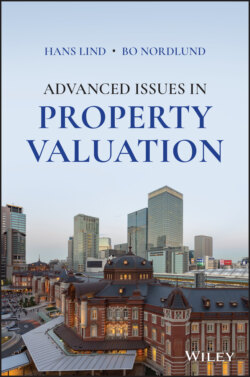Читать книгу Advanced Issues in Property Valuation - Hans Lind - Страница 12
2.6 Problem 3: Should the Definition Refer to Prudent and Knowledgeable Actors?
ОглавлениеThe condition that parties had acted knowledgeably and prudently is clarified in the following way in IVSC (2019 , p. 19–20):
presumed that both the willing buyer and the willing seller are reasonably informed about the nature and characteristics of the asset, its actual and potential uses, and the state of the market as the valuation date… . the prudent buyer or seller will act in accordance with the best market information available at the time.
There are two problems with including this kind of formulation. First, it raises empirical problems. What is the state of the market? What is the best market information at that time? How can the valuers know what is the best market information available – and what it means to act in accordance with this information? Some actors in the market rely on intuition and gut‐feeling, and is such behaviour inconsistent with being prudent? And if comparative sales are used during the valuation process, how should the valuer find out whether these sales fulfil the conditions that the parties had acted prudently and knowledgeable? We would suggest that there can be large differences in opinion about those issues, both among actors in the market, valuers and followers of the market, especially during boom periods. Robert Shiller argued in a famous book (Shiller 2000 ) that share prices in the late 1990s was based on ‘irrational exuberance’. Some would probably say the same about the property market in many countries during the late 1980s or during the period before the financial crises around 2009. If transactions were carried out by people with ‘irrational exuberance’, those transactions would not be relevant for evaluating the market value at that point in time – if the market value is defined as the expected price given knowledgeable actors. Some of the problems that this leads to will be discussed also in Chapter 5 when the concept mortgage lending value is discussed.
The second argument against including reference to prudent and knowledge actors is the same as the argument against including a reference to competitive markets. In reality, the prudence and knowledge differ between actors, between markets and over time, and the market value concept should be applicable independently of the characteristics of the actors on the market. Adding references to prudence and knowledge reduces the relevance of the market value so defined, especially when a valuation is done for transaction purposes.
The conclusion would therefore be that the conditions about prudence and knowledgeability should not be included in the definition. The valuer should look at the current market as it is and should not have to evaluate whether the actors in this market are rational or not, given a certain interpretation of rationality. It should also be remembered that the market value definition refers to the most probable price, and if there now and then are (especially) stupid actors on the market – paying too much or selling to cheap compared to other transactions at the same time – those prices would simply not be rational to expect and should therefore not be given great weight when the market value is estimated. This means that the valuer might need to evaluate what lies behind certain transactions with deviating prices, but there is no need to evaluate whether the actors on the market in general are acting prudently or knowledgably.
